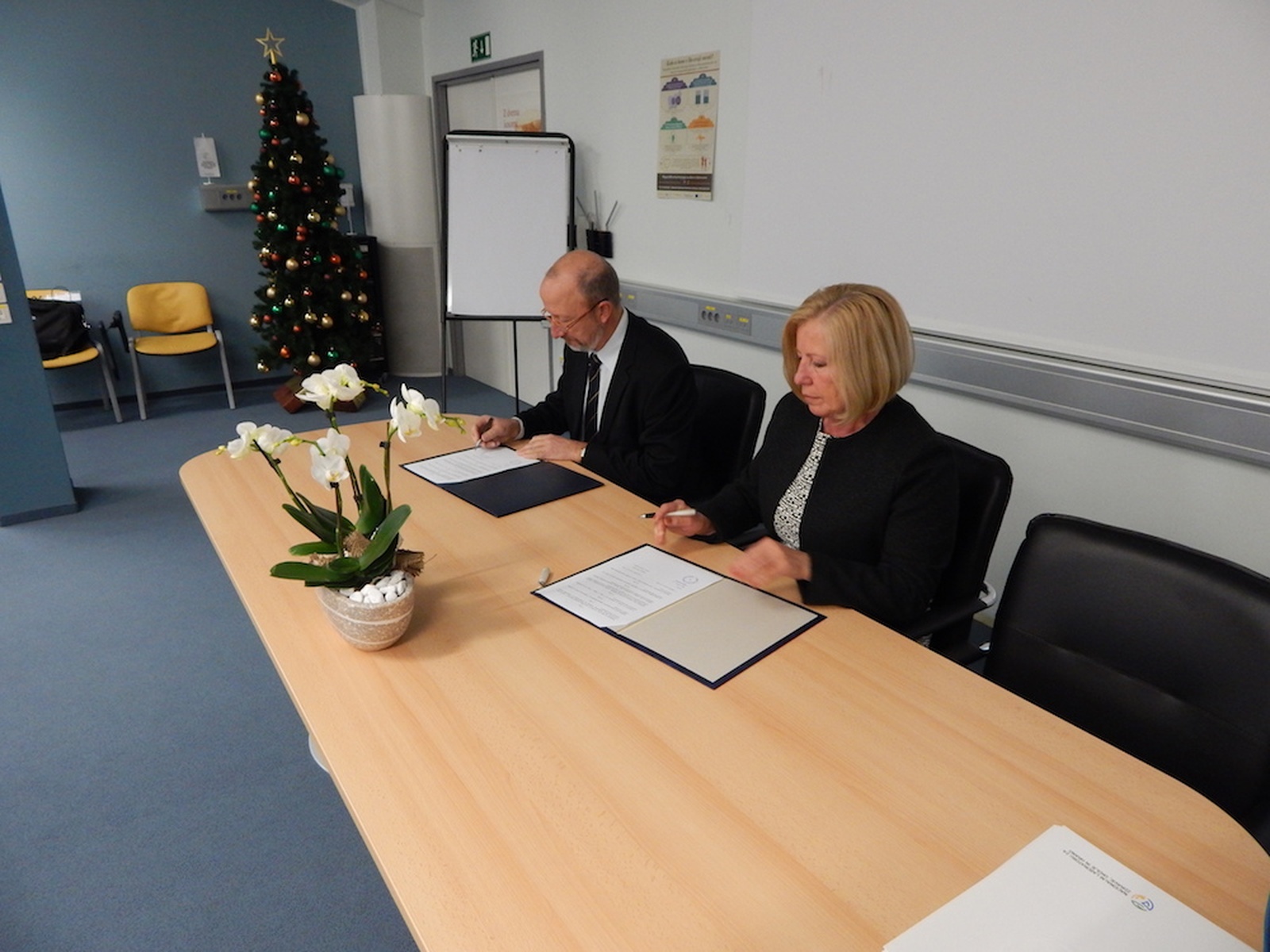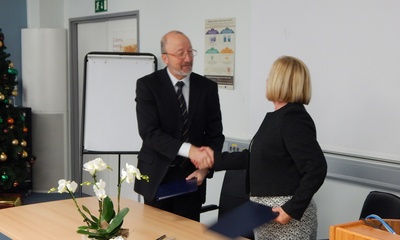The University of Nova Gorica and the National Laboratory for Health, Environment and Food signed a Cooperation Agreement
On Friday, 16 December, the University of Nova Gorica (UNG) and the National Laboratory for Health, Environment and Food (NLZOH) signed a cooperation agreement that incorporates research, scientific and pedagogical areas of work.

By signing this cooperation agreement, both institutions who have displayed their professional excellence for many years and have had international success, show a joint interest in establishing a long-term cooperation in those areas where their activities can be aligned.
The activities, the research work, and the available study programs of the School of Environmental Sciences at the University of Nova Gorica are similar to the activities of the National Laboratory for Health, Environment and Food.
Hence the goals of cooperation between both institutions on the formal level are mostly:
- Cooperation at project proposals for projects on the national level, cross-national level, macro-regional level, and for European projects.
- Cooperation of researchers of both institutions at their research work
- Cooperation in the field of education concerning environments, health and food.
- Cooperation in the field of laboratory analytics connected with environment and health.
- Advising and carrying out of student practice of the UNG students at the NLZOH.
- Co-usage of the laboratory instruments of both institutions for the purpose of the development, research and educational activities.
- The exchange of the know-how regarding the introduction of innovative technologies in the processes of both institutions.
- Organizing of the goal-oriented pedagogical-andragogical education for the NLZOH’s needs.
By acquiring better chances of getting European funds for project-related and education-related work, we expect the results of our cooperation to become visible in new research methods, improved measuring techniques, improved environmental technologies, and in a more efficient transfer of knowledge into the economic sphere.
Andreja Leban, Public Relations


